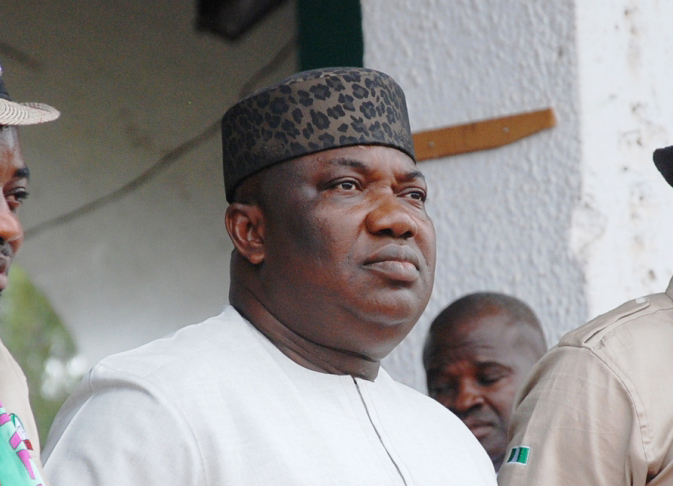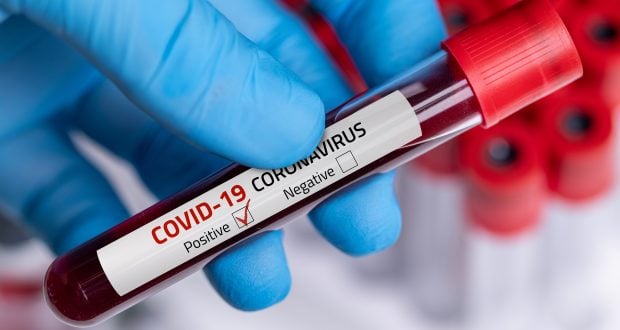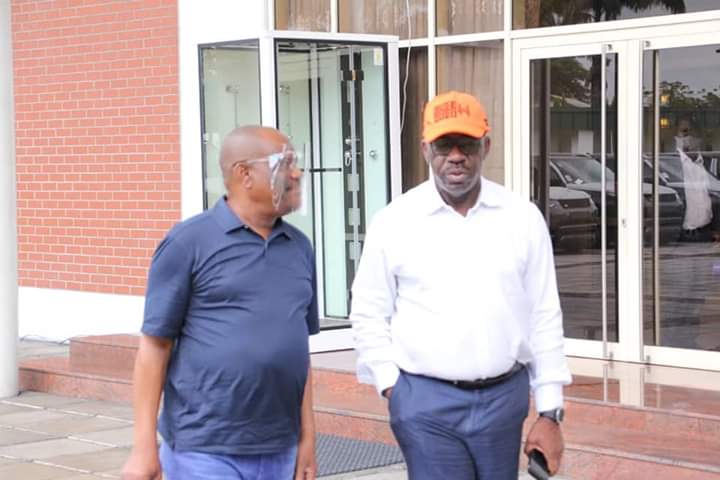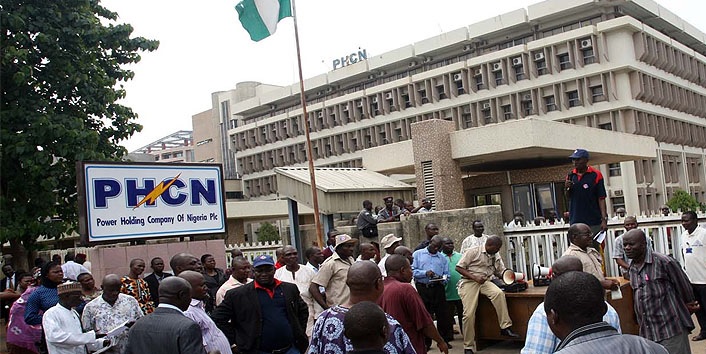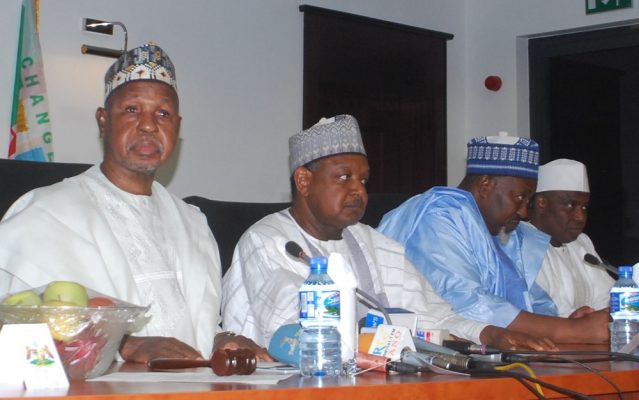Pic 18. From left; Chairman, Nigeria labour congress Enugu State chapter, Comrade Virginus Nwobodo; Gov. Ifeanyi Ugwuanyi of Enugu State and chairman Trade Union Congress Enugu State chapter, Comrade Chukwuma Igbokwe during the 2017 May Day celebration in Enugu on Monday (1/5/17).
02382/1/5/2017/Michael Agada/EO/NAN
BY UCHENA NWATU
I have just read a hatchet work titled, “Governor Ugwuanyi and His Anti-Midas Touch”, written by a hired hand hiding under a pseudonym. Like all hatchet works, the real intent of the writer and his sponsors could still be discerned beneath all the subterfuge of patriotism and intellectualism.
It is just as well that the writer (his story is false and his identity is fake, so I won’t even flatter him by mentioning it more than I have already) delved into Greek mythology in his puerile attempt to disparage Governor Ifeanyi Ugwuanyi and put a gloss on his predecessor’s policies, no matter how atrocious they were. Hoping that he is truly versed in Greek mythology, I recommend for him another legend from that ancient history as an appropriate response to their covert smear campaign – The story of Sisyphus. In Greek mythology, Sisyphus was a crafty figure condemned By Zeus to the eternal task of rolling a boulder uphill and watching it in frustration roll back to the valley every time it neared the top.
The futility of Sisyphus’ attempt to roll up that huge rock sums up the desperate bid by the writer and his cohorts to obfuscate glaring facts that have defined the Ugwuanyi administration in the last five years.
Advertisement
It is disingenuous to blame the Enugu State governor for the closure of the Coca Cola plant at 9th Mile Corner. The shutdown of the 9th Mile plant had nothing to do with any hostile business environment as the writer had mischievously claimed. The closure was simply an economic response to the shrinking market share the company’s products have suffered since the introduction of similar, but lower-priced brands into the carbonated drinks sector. So, it’s a country-wide challenge for Coca Cola, made worse by the 2015/16 recession that significantly reduced consumers’ purchasing power across board.
Had the writer not been driven by mischief, he would concede that no government in Enugu State – including the administration he apparently idolizes, and at whose veiled behest he is spewing such barefaced lies – has done better than the current administration to create a conducive operating environment for businesses. This is not mere opinion; it is facts-based knowledge. As the World Bank’ Doing Business in Nigeria report for 2018 shows, Enugu is ranked as the third-best state to start a new business in Nigeria. The report, the fourth since the World Bank launched its sub-national series on Nigeria, analyze business regulations in Starting a Business, Dealing with Construction Permits, Registering Property, and Enforcing Contracts.
Is it not ironical that the writer is alleging the existence of an unfriendly business environment in Enugu State, just weeks after it emerged the state posted Nigeria’s ninth best IGR figure for 2019, despite receiving one of the least amount from the Federation Accounts and Allocation Commission? This is based on a report by the National Bureau of Statistics. The significance of this performance takes on greater resonance when it’s considered that many oil-producing states’ IGR fell outside the top 10, and that it was achieved without an additional tax burden on the masses.
Advertisement
No government will be happy to see businesses exit from ifs jurisdiction as the death of every business impacts negatively on its internal revenue and could create challenging social and economic problems arising from job losses. But the Coca Cola case was far beyond what the Enugu State – or any state as a matter of fact – could control. Indeed, the experience of Nigerian Breweries, another corporate entity operating less than five hundred meters from the now shut Coca Cola plant, further exposes the writer’s mischief. Here is what the Nigerian Breweries’s CEO, Mr. Jordi Borrut Bel, told Governor Ugwuanyi during a courtesy visit to the Government House, Enugu, last year: “I would like to express our gratitude for the work you have done in the network of roads around the brewery. I would also like to commend you for the enabling environment you’ve created in the state.”
The NBL helmsman had also noted that the business-friendly environment in Enugu State has positively impacted the company’s fortune, adding that the company intends to expand the production capacity of its brewery at Ama, as a result. So, the massive job losses the writer alluded to can only exist in his imagination. In fact, an NBS report on employment at sub-national levels puts Enugu among six states that recorded the highest net gains in employment in 2018.
One of the unintended consequences of having a mischievous intent in making comparisons between governments is that it sometimes rekindle public memory and sheds an uncomfortable light on policies the purveyor seeks to cast as success stories. An example is the writer’s claim in regard to Hotel Presidential, leased out in 2014 by the Sullivan Chime administration on a 35-year concession to Primeview Hotels Limited. The writer hailed the deal as a stroke of genius and deplored the revocation by the incumbent administration on evidently rational grounds.
Aside from the fact that such prime state asset was leased out without due process to a company that neither has the competence nor track record in hotel management, a bigger puzzle is how it could possibly be privatized without any tangible returns to the government. Can the writer reconcile the shockingly deplorable state of Hotel Presidential in 2018 when the lease was revoked, with the concessionaire’s claims that it had invested over $1.2m on the facility since the acquisition? There was no evidence of “investment”. What existed, rather, was stark evidence of unconscionable asset-stripping. No amount of embellishing can change that fact.
Advertisement
If the writer wasn’t driven by ulterior motives, he should have found it curious that his idol waited until few months to the end of his two terms before privatizing an iconic asset like the Presidential Hotel, built in 1964 by Dr. Michael Okpara as premier of the Eastern Region. Such is the blinding desperation of a Sisyphean task. It creates a blinkered reality that seemingly situates validation for one government in the savaging of another’s reputation.
The fact there is still so much development deficit despite the massive projects Governor Ugwuanyi has implemented across Enugu State is a strong indication previous administrations had left so much undone. Governor Ugwuanyi has invested billions in schools upgrade (committing over N9.8b to primary schools alone; constructed and renovated over 950 classroom blocks; providing over 60,000 lockers and chairs; and equipped nearly all public schools with ICT facilities), but cynics like the writer of the warped essay in question will gleefully point at one “dilapidated” school and declare – rightly, albeit hypocritically – that students should not have to study in such structure in the 21st Century.
Such hypocrisy often ignores this pressing question: to where have all the schools that experienced a wholesome turnaround during the past administrations disappeared? The embarrassing answer is that they never existed because none was ever built. And that is the problem with ribbon development, a perverse hallmark of the administration the writer regards as Enugu State’s halcyon years: its deceptive grandeur easily crumbles under scrutiny like snowflakes in sunlight.
It is only hypocrisy that would make anyone familiar with development in Enugu State to ignore the fact that as at 2015, gratuities in Enugu State had not been paid since 2004, which is eleven years before the incumbent governor’s inauguration. The inconvenient truth is that the last administration did not, in fact, pay a single gratuity for eight years. Critics also deliberately ignore the fact that the Ugwuanyi administration has consistently released N100m every month to offset this backlog.
Advertisement
What else, if not mischief, would make individuals gleefully quote a rather unusually low NBS economic data on Enugu State, but dismissively wave off countless other remarkable development data on the state also released by the NBS? Such statistics include Enugu’s status as the state with the third best doctor-to-patient ratio in the country, and its ranking among 10 states with the most expenditure on public health. Other impressive data is in education where it has in the last five years maintained a top 10 performance in national examinations, and rated as one of few states with the least out-of-school population.
For 11 years, the two foremost tertiary institutions in the state (Institute of Management and Technology, and Enugu State University of Science and Technology) could not hold convocation ceremonies, owing to a systemic dysfunction that led to loss of accreditation for several courses. But in less than one year after Governor Ugwuanyi’s inauguration, those issues had been resolved.
Advertisement
No matter how long facts are ignored, they cannot be altered; they remain facts. Those who deny facts in the hope of creating an alternate reality scornful of governments they detest are doomed to the fate of Sisyphus – hauling boulders of falsehood to the summit and watching them crash to the valley.
Nwatu, an archivist, resides in Enugu.
Advertisement
Views expressed by contributors are strictly personal and not of TheCable.
Add a comment
